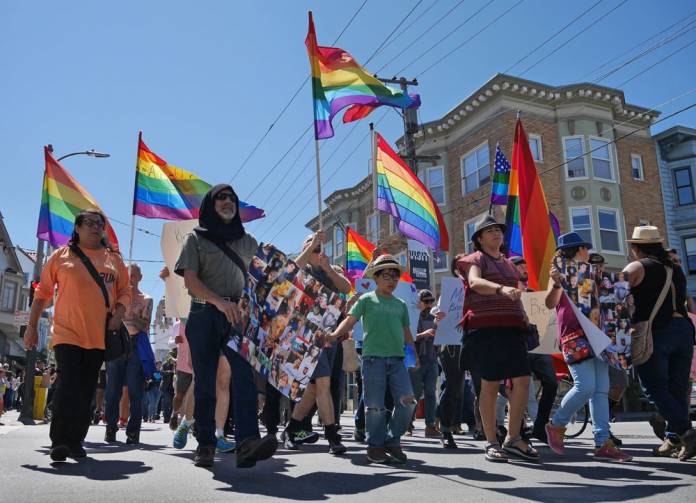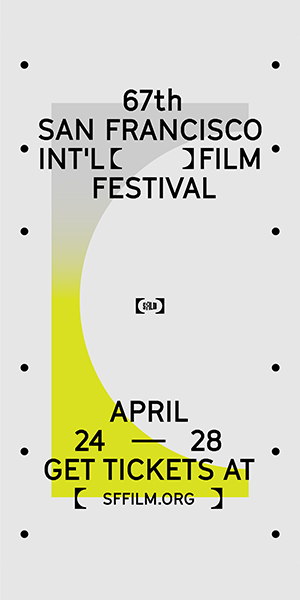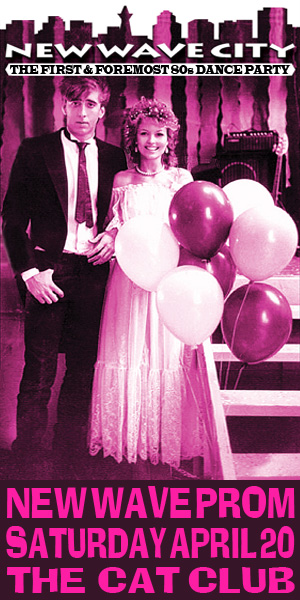Along the sidelines, observers cried, applauded, threw the peace sign, and waved rainbow flags. But the mood among the hundreds of marchers who took to the streets, symbolically threading their way from the Castro to the Mission on Saturday afternoon, was determination to show solidarity and love between the Latino and LGBT communities.
The march, called Amor Y Solidaridad, was also held to acknowledge that the Orlando gay nightclub shooting that took 49 lives was an act of hatred perpetuated on both communities. The majority of the lives lost were both queer and Latinx, spanning all gender expressions, many emigrating from Puerto Rico, which continues to be devastated by American economic policy.
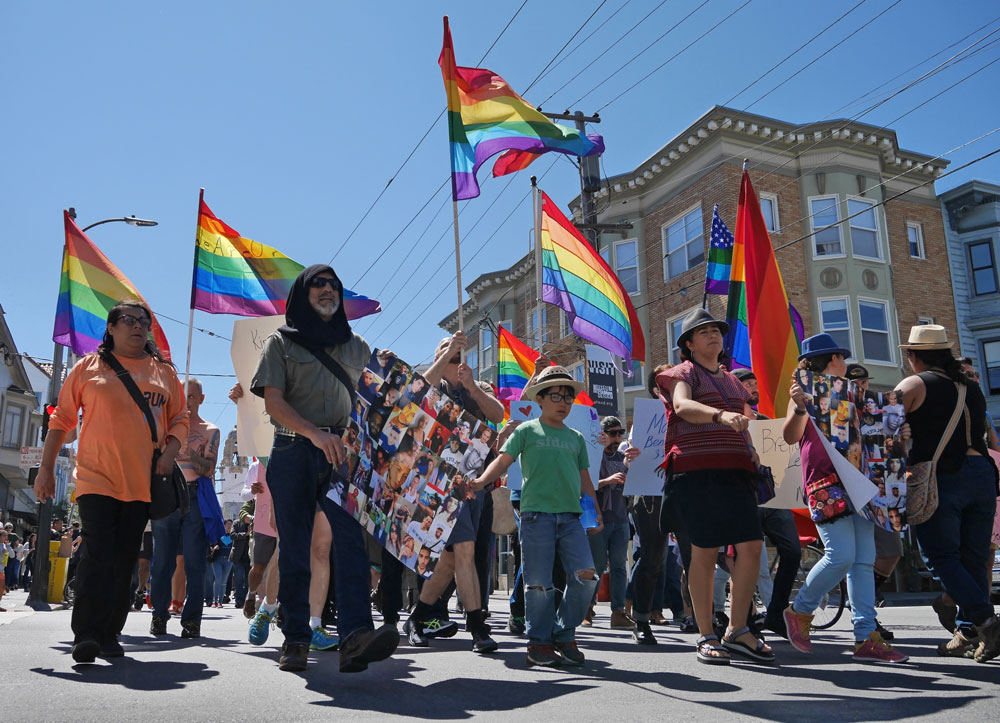
The fact that this was a hate crime perpetuated against LGBT Latinos has been egregiously whitewashed, from major politicians playing down any connection to the Latino gay community — even doubting one can exist — to a ridiculously bland New York Times opinion piece, which astonishingly left out any mention that 90 percent of the victims were Latino, despite centering on last Sunday’s Pride celebration in Los Angeles, one of the most LGBT-Latino areas in the nation.
In fact, Orlando’s Latino gay community actually had to hold a press conference to remind the media and politicians that this was a Latino LGBT hate crime.
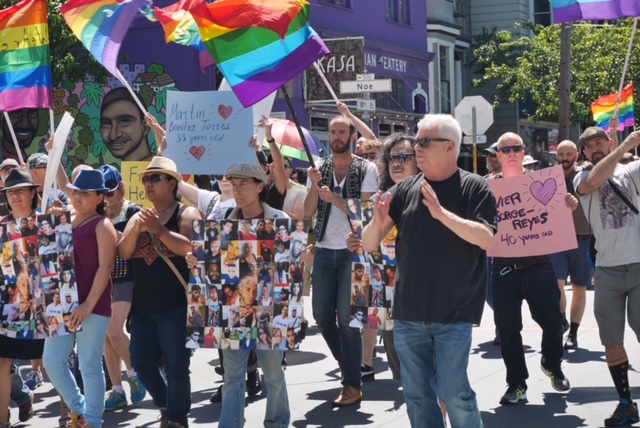
In more local terms, the march — which started at Harvey Milk Plaza at Castro and Market and wound its way to Galeria de la Raza at 24th Street and Bryant — was partly organized as a corrective to last Sunday’s massive vigil in the Castro, which was criticized from the stage by Lito Sandoval, head of the Latino Democratic Club, for failing to include leaders of the Latin community. When asked by the Examiner why his office didn’t reach out to to Latino leaders when planning the vigil, Castro district supervisor Scott Wiener was unapologetic, citing a short planning time frame.
Still, beyond the politics, for many this was the first chance to communally grieve the dead and commemorate them in ways both sacred and public. The march was supported by the SF Latino Democratic Club, the Harvey Milk LGBT Democratic Club, and the GLBT Historical Society. Members of UNITE HERE and other labor organizations were also on hand.
The march was expertly led by longtime LGBT activist Cleve Jones, who was lively yet quiet, knowing that this was a time for Latino queer voices to be heard. Signs listing the victims’ names were held aloft. Chants of “Viva Orlando, Somos Orlando” and “No to homophobia! No to transphobia! No to xenophobia! No to sexism! No to Islamophobia!” rose up.
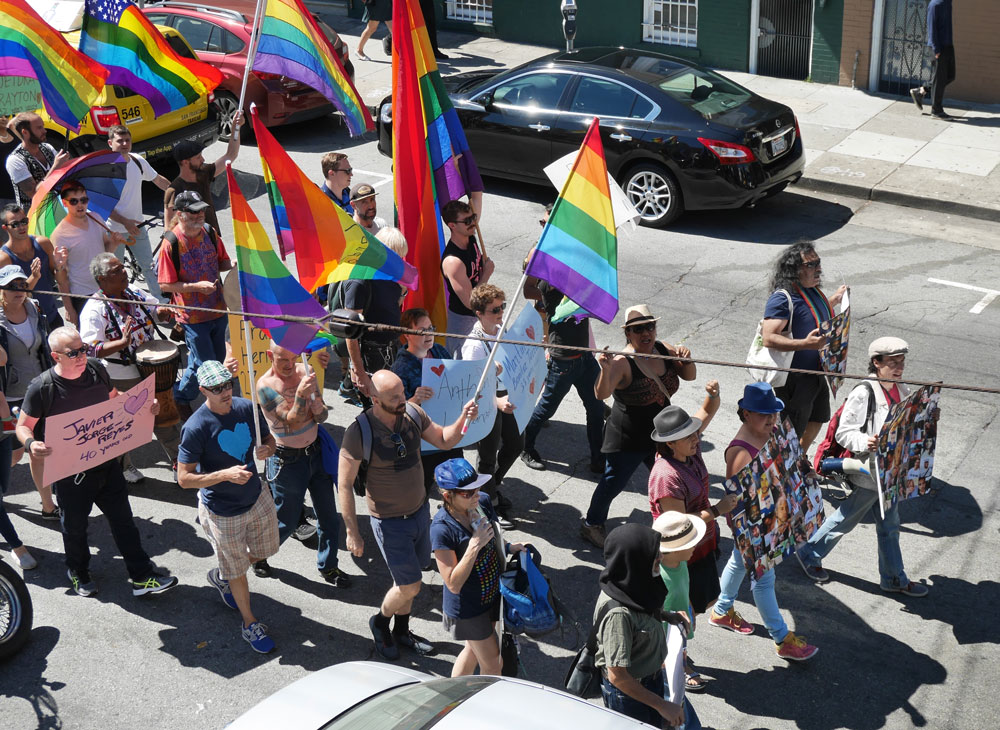
When the march ended at Galeria de la Raza, there was a short program that included a two-spirit song that welcomed ancestors to the gathering, and a spritual invocation, during which the crowd turned and faced the four directions of the compass, which represented determination for peace, strength, healing, and power, among other characteristics.
During the program that followed, Galeria director Ani Rivera spoke of how systematic racism and homophobia — “the 500-year American colonial project” to stifle other voices and sexualities — led to the massacre, and how those elements made it so painful to the community now. “I look at their names, it could’ve been any one of us,” she said. Many in the crowd held each other and cried.


